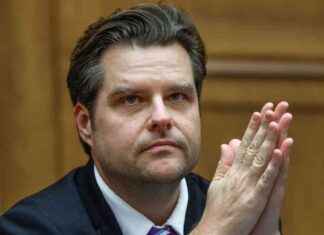Vice President Kamala Harris is projected to win the upcoming election, according to a recent CNBC survey of C-suite executives. Despite President Donald Trump’s superior economic performance, top executives across various industries are preparing for a Harris presidency. The survey, conducted between August 19 and September 19, revealed that a majority of chief financial officers believe Harris will emerge victorious.
Shift in Confidence from Q2 to Q3 Survey
In the previous survey conducted in Q2, a majority of CFOs believed that Trump would win the election. However, the tide has turned, with 55% of CFOs now predicting a Harris victory. Only 31% of CFOs believe Trump will win, and 14% remain unsure of the outcome. This shift in confidence reflects a growing consensus within the business community that Harris will prevail in the election.
Economic Views of CFOs
Despite the majority belief that Harris will win, 55% of CFOs still view Trump as better for inflation and the economy. Only 17% of CFOs think Harris has a better plan for the economy. Inflation and interest rates, tax policy, and regulation were cited as the most important issues for CFOs, while trade and tariffs policy, a key talking point for Trump, was only mentioned by 7% of CFOs.
Expectations for a Divided Government
CFOs expect the government to remain divided after the election, with nearly three-quarters of respondents predicting a split in Capitol Hill. While 45% of CFOs foresee the Democrats retaining control of the Senate and the GOP maintaining control of the House, 29% anticipate a flip in control between parties. This expectation of a divided government reflects the uncertainty surrounding the upcoming election and its implications for policy-making.
Economic Platforms of the Candidates
Both candidates have been focusing on their economic platforms in recent days. Trump has proposed new tax incentives for corporations, while Harris has outlined her economic blueprint, emphasizing an economy designed for middle-class opportunity. Harris’s plan includes tax credits for companies offering union jobs in manufacturing industries and a call for higher corporate taxes, albeit not as high as Biden’s proposal. Trump, on the other hand, has vowed to cut corporate taxes to as low as 20%.
Harris’s Economic Message
In a speech to the Economic Club of Pittsburgh, Harris reiterated her commitment to building an economy that benefits middle-class families. She emphasized the importance of cooperation between businesses and government to spur economic growth. Harris has attracted support from business leaders, including billionaire Mark Cuban, who has endorsed her economic vision. Cuban described Harris as pro-business and noted her efforts to find a middle ground on economic policies.
Trump’s Economic Focus
Meanwhile, Trump has been highlighting his plans to expand research and development (R&D) tax credits, allowing U.S.-based operations to fully expense costs in the first year. This issue has garnered bipartisan support among legislators, with efforts to bring back full expensing of R&D expenses gaining traction. Trump’s focus on R&D reflects his administration’s commitment to fostering innovation and growth in key sectors of the economy.
Corporate Priorities
CFOs participating in the survey identified R&D tax expenses, construction of new facilities, and increasing R&D spending as top priorities for capital expenditures in the coming year. These priorities align with the broader goals of driving innovation and competitiveness in the corporate sector. As businesses navigate the economic landscape, strategic investments in research and development will be crucial for long-term growth and sustainability.
Conclusion
The upcoming election presents a pivotal moment for the U.S. economy, with both candidates outlining their visions for economic recovery and growth. While CFOs express confidence in Harris’s electoral prospects, they recognize the strengths of Trump’s economic policies. As the election draws near, businesses are closely monitoring the candidates’ economic platforms and preparing for potential policy changes. The outcome of the election will shape the future trajectory of the economy and influence business decision-making in the months ahead.








